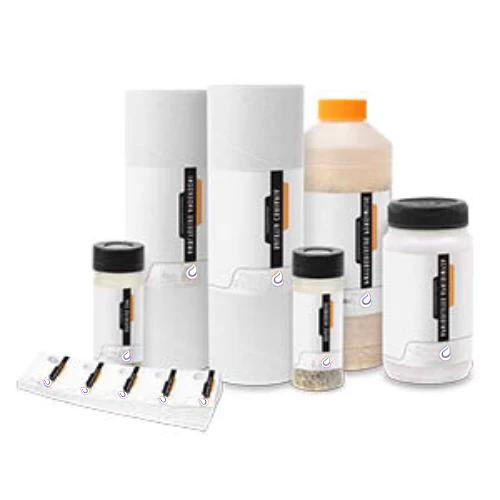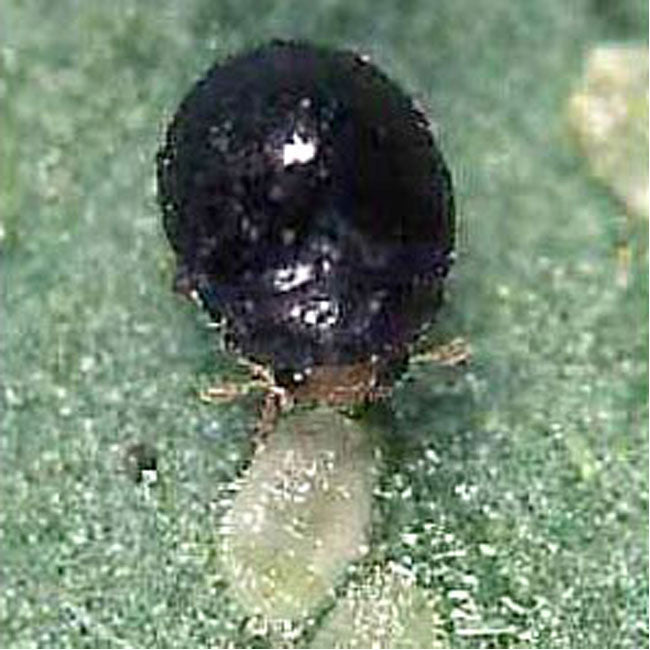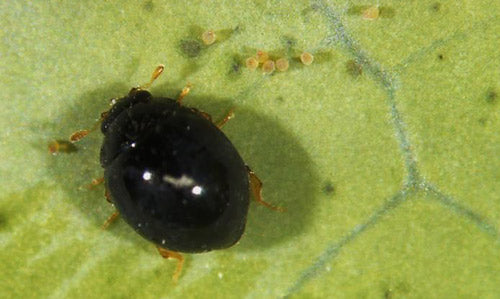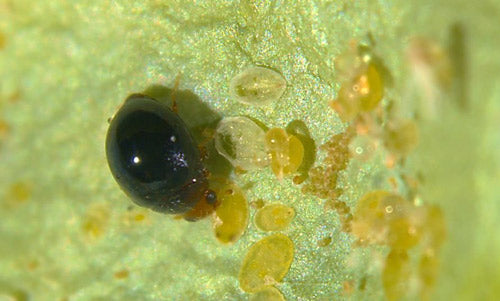GrowersHouse Delphastus catalinae - Control - Whitefly
GrowersHouse Delphastus catalinae - Control - Whitefly
Couldn't load pickup availability
Delphastus Catalinae
Controls:
Delphastus catalinae is a small ladybird black beetle that is best known for its ability to control whiteflies and whitefly eggs. Preys on all species and stages of whitefly, but prefers eggs and nymphs. It is considered an effective biological control agent for whiteflies because of its high prey consumption rates, long adult survival, and high reproduction rates.
Application Rate Recommendations for Delphastus Catalinae:
- Preventative: 1-2 per square foot or at least 100 adults per whitefly “hot spot", or 10 adults per infested plant, weekly, for 3-4 weeks. Introduce Delphastus in whitefly-infested areas of the greenhouse as soon as whiteflies are detected.
- Moderate Infestation: 2-4 per square foot or 500 adults per whitefly “hot spot”, or 1-2 adults per 10 square feet, weekly, for 4 weeks.
- Heavy Infestation: 4-6 per square foot or 500 adults per white fly “hot spot”, or 3-4 adults per 10 square feet, weekly, until established in all infested areas.
How-To Use Delphastus Catalinae For Best Results:
- Store them at 50-59 °F (10-15 °C)
- Release them in the early morning or late evening.
- Open the container, and gently shake beetles onto foliage close to whitefly infestations.
- Place the container upright among plants to release the remaining beetles.
- Most effective at high whitefly densities.
- Since adult female beetles must feed on over 200 eggs per day in order to reproduce, it may be of limited benefit in greenhouses where whitefly populations are low.
- Both adult and larval beetles avoid feeding on whitefly nymphs parasitized by wasps such as Encarsia formosa and Eretmocerus eremicus when the wasps are in the later stages of development.
Features & Benefits:
- High prey consumption rates
- Long adult survival
- High reproduction rates
- Effective biological control agent for whiteflies
- Used to control whiteflies in tropical and semi-tropical plants as well as commercial greenhouses.
- The predators avoid feeding on parasitized whiteflies, therefore is compatible with whitefly parasites such as Encarsia and Eretmocerus species.
- Tends to feed in high-density whitefly populations, while parasites do best at lower densities.
- Prefer feeding on whitefly eggs.
Item Numbers:
BW-ABDC100 - 100 per bottle
BW-ABDC1K - 1,000 per bottle



Shipping & Returns
Shipping & Returns
Because we ship live insects and want them to arrive to you as freshly as possible, we only ship Monday through Wednesday. This means your shipment will arrive Tuesday through Thursday, possibly Friday if there are any unforeseen delays such as bad weather. Since FedEx does not ship over the weekend, we do not want insects to sit in a fulfillment center where they have a greater chance of not arriving to your garden fresh-as-can-be.
Free Consulting
Free Consulting
Have our beneficial predatory insect specialists help you pick the best solution for your garden or cultivation operation. Fill out this form.
Share








